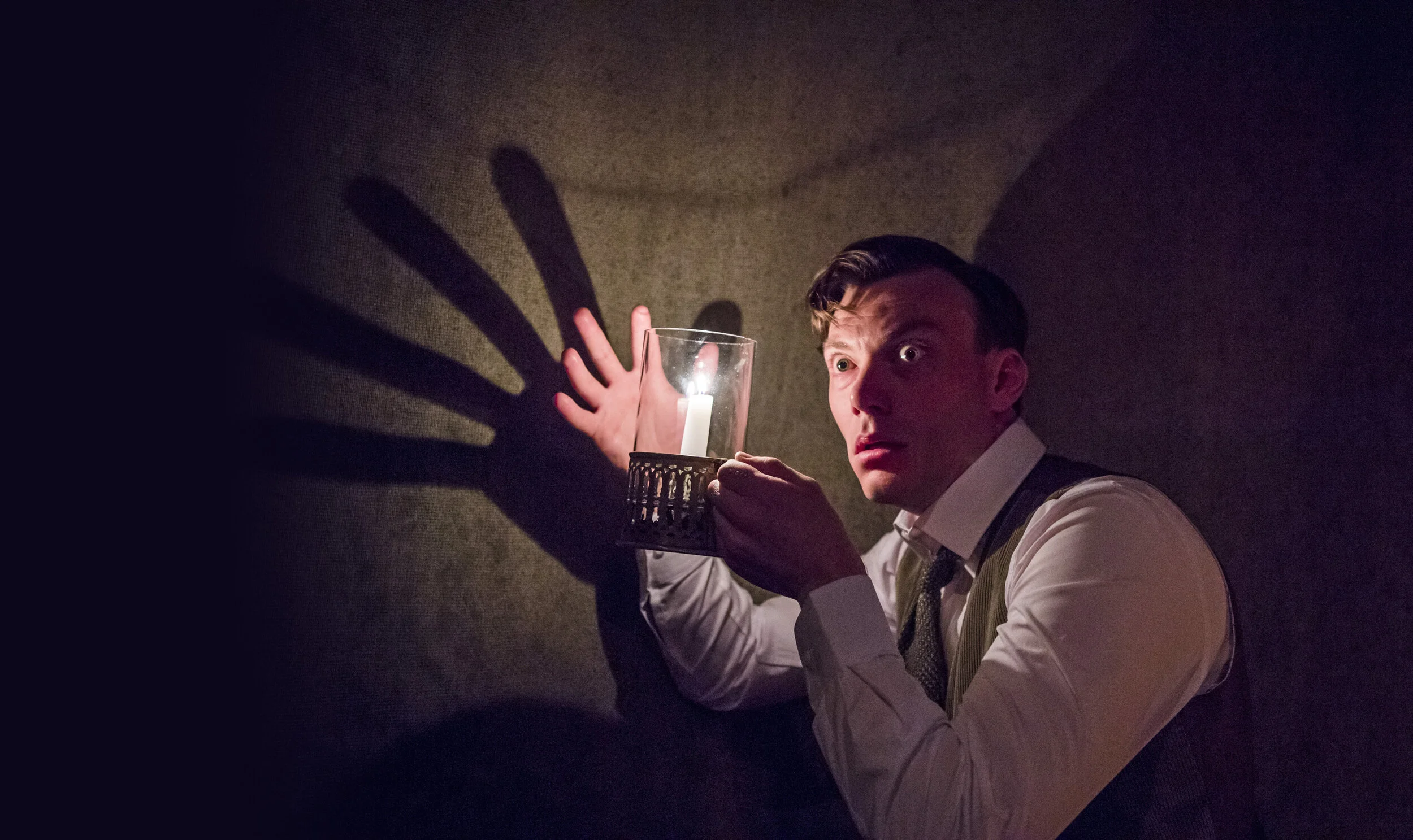THE ANCIENT MARINER - AT CORPUS PLAYROOM
For me he is a great magician. Samuel Taylor Coleridge has been in my life for more than thirty years weaving his magical spell over my imagination. Both my children attended Coleridge Community School and in 1994 I wrote a short musical play for them about the life of the opium-addicted Romantic poet. ‘Visions in a Dream’ charted the early and most productive part of Coleridge’s world and involved a dreamy research trip to his native Quantock Hills, the village of Nether Stowey where he wrote about Xanadu and the small Somerset port of Watchet from where, it is said, the Ancient Mariner set sail on his doomed voyage to the frozen wastes, the burning oceans and the ill-fated albatross that fell dead upon his neck.
Ever since that trip and the subsequent play performed in Stowey, I have been an adoring fan of the great man. Never mind the sumptuously gorgeous poems ‘Frost at Midnight’ and ‘The Aeolian Harp’, Coleridge is best remembered for his long and deliberately archaic ‘The Rime of the Ancient Mariner’. Over the years I have seen several attempts to bring this epic work to life on stage; none have worked – until now.
The story is told through one actor – Matt Wilkinson, as the haunted mariner appropriately dressed in barnacle-covered old clothing. It is virtually sung through accompanied by a richly melodic piano score composed and played by Geoff Page. Cleverly setting the simple rhyme scheme to music, Page is bold enough to repeat lines where the drama and music demand it. Also he begins the piece with repeated fragments from the whole poem showing us the mariner’s inner torment – ‘one by one, one by one’ he oft repeats. Wilkinson is brilliant at facial expression and the mental torture of the memory of his ghastly ordeal at sea shines through his penetrating eyes. He is also a fine singer – dealing easily with Page’s eclectic vocal styles with strong hints of Benjamin Britten (surely shades of Peter Grimes here?), Vaughan Williams and even a nod to the Victorian balladry of Arthur Sullivan. Part grand opera, part song cycle, Page’s immensely creative score was as fleet as any schooner in a howling gale. Light moments were few as the mariner stalked around the thoughtfully dressed tiny stage – think lanterns, old sails, a barrel and plenty of rope.
There were episodes of crashing drama such as in the famous ‘water water everywhere’ lines (echoed by thunderous chords on the keyboard) and also small, beautifully pointed glimpses of calm and even joy as in the moment when the mariner realises that behind the savagery of nature is also a divine beauty. The little sinewy melody employed at this point brought tears to this ancient scribbler’s un-glittering eyes.
Throughout the piece, Wilkinson kept the audience mesmerised with his powerful presence and total command of the music and the poetry. As the mariner left the stage intoning prayer-like lines, there was a stunned hush in the house. Had Coleridge worked his magic again? Yes. And like his ancient mariner’s story, I hope this work will be repeated again and again.







